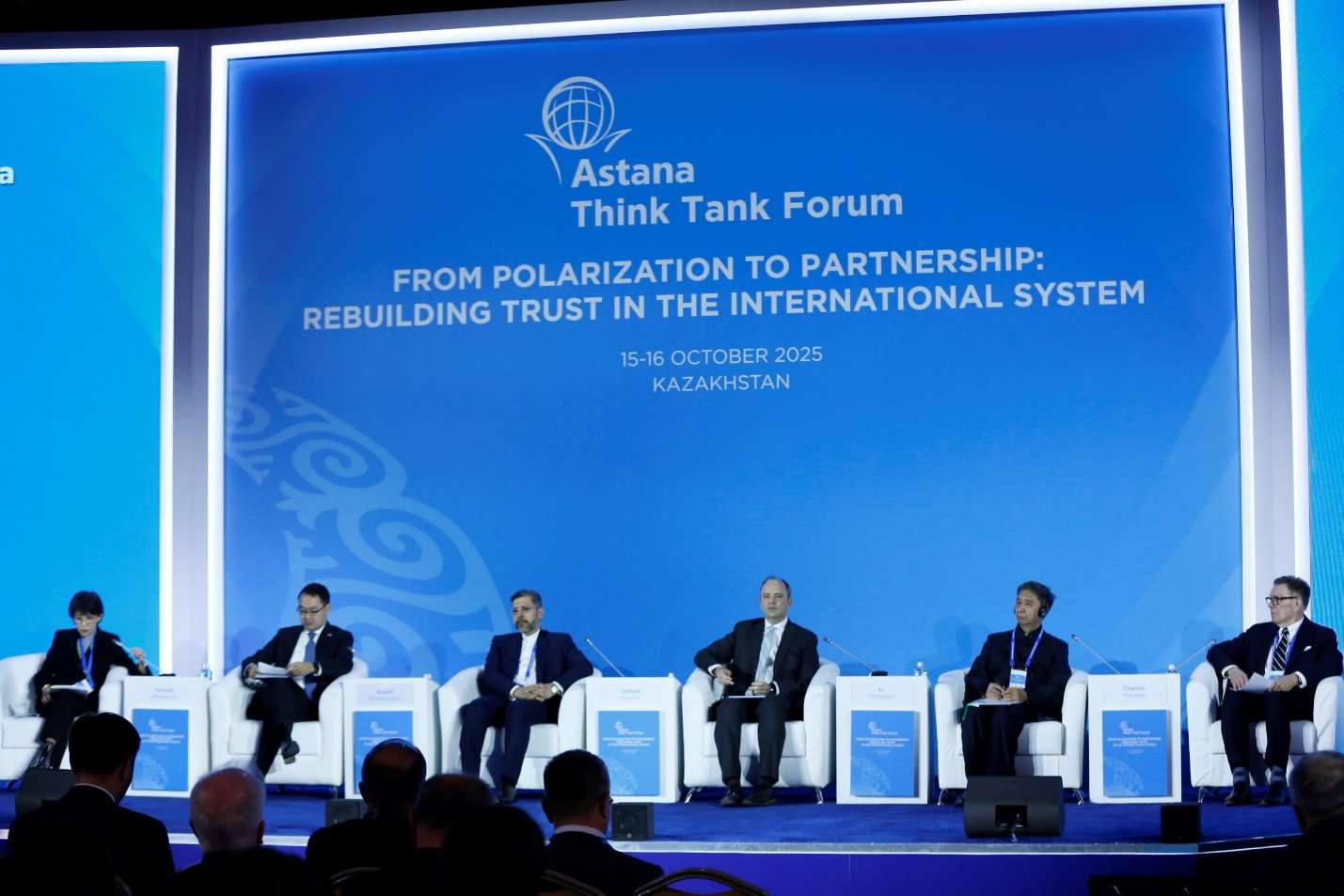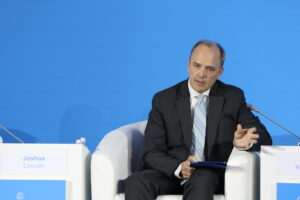The Kazakh capital hosted the two-day Think Tank Forum on Oct. 15-16, bringing together leading scholars, diplomats, and policymakers across the globe, from the United States to Eurasia, to explore practical ways to rebuild trust and strengthen cooperation in an increasingly fragmented world. The event, organized by the Kazakhstan Institute for Strategic Studies (KazISS), sought to generate new ideas for a more resilient and inclusive international order.
Addressing the opening session, Magzum Mirzagaliyev, the Kazakh President’s advisor, said the world today faces a profound “deficit of trust” between nations, within societies, and toward institutions. He warned that polarization has become a defining feature of international relations, undermining multilateral cooperation.
“Polarization has become not only a political phenomenon but also a defining feature of international relations, challenging the very foundations of multilateral cooperation. In such times, dialogue and engagement are essential, not optional. They form the backbone of progress and mutual understanding. Kazakhstan firmly believes that trust is the cornerstone of peace and that dialogue is a more reliable path through uncertainty,” Mirzagaliyev said.
He emphasized that events like the Astana Think Tank Forum play a vital role in renewing confidence in global cooperation and in reminding the world of shared goals.
“Events such as this remind us that despite our differences, we are bound by the same aspirations – security, stability, and sustainable development. The discussions that begin here in Astana will, I hope, contribute to renewing faith in cooperation among all nations. Kazakhstan will continue to serve as a facilitator of balance both in our region and beyond, and as a trusted partner in addressing global challenges through reason, respect, and collaboration,” he said.
Speaking at the first session, “Multilateralism at a Crossroads: Reforming Global Governance in a Divided World,” First Deputy Minister of Foreign Affairs of the Republic of Kazakhstan Yerzhan Ashikbayev emphasized the need to build a “constructive consensus” and strengthen multilateralism in the face of increasing international polarization, noting the growing role of “middle powers” in maintaining stability, peace, and sustainable development.
The importance of reforming the UN Security Council, strengthening regional cooperation formats, and promoting a responsible approach to regulating artificial intelligence was noted. Particular attention was paid to Kazakhstan’s efforts to achieve carbon neutrality by 2060 and strengthening transcontinental connectivity in Central Asia.
In this context, Y.Ashikbayev emphasized that Kazakhstan consistently promotes a vision for the region’s further development based on the strengthening of mutually beneficial ties within Eurasia and the creation of a synergy of interests between Central Asian countries and their external partners.

Joshua Lincoln, senior fellow at the Fletcher School of Law and Diplomacy at Tufts University cited Kazakhstan as an interesting illustration of the diplomatic balance needed in global governance. Photo credit: press service of theKazISS
Joshua Lincoln, senior fellow at the U.S. Fletcher School of Law and Diplomacy at Tufts University and visiting fellow at Oxford University, brought an academic lens to the discussion, urging participants to “think together” beyond national boundaries, cultures, and worldviews.
Lincoln observed that global institutions created in 1945 now face “unprecedented challenges.”
“The UN Charter was pre-digital, pre-nuclear, pre-human rights, pre-climate crisis. We are living in a moment that requires slow, managed renewal, what Canadian scholar Thomas Homer-Dixon calls ‘constrained breakdown.’ If the breakdown is slowed and moderated, it allows the possibility of renewal rather than total collapse,” he said.
Lincoln discussed the rise of alternative multilateral formats such as BRICS and the Shanghai Cooperation Organization (SCO), which he said emphasize sovereignty and multipolarity but often lack strong enforcement mechanisms. In contrast, smaller groupings such as the Quadrilateral Security Dialogue (QUAD) and the Organization for Economic Co-operation and Development (OECD) “allow faster decision-making but risk deepening fragmentation.”
He cited Kazakhstan as an “interesting illustration” of the diplomatic balance needed in global governance.
“Kazakhstan is a member of the SCO, CSTO, and the Eurasian Economic Union, and an associate member of BRICS Plus. At the same time, it continues to call for sovereign equality, the inviolability of borders, and the peaceful resolution of disputes. This kind of dual-track diplomacy we will need in the period ahead,” said Lincoln.
Searching for leverage
Rounding out the discussion, Charles McLean, founder and managing director of the Borderless Consulting Group in the United States, reflected on the need for effective “leverage” to address today’s crises.
“It’s a question of how you get the leverage to deal with big problems, such as the Gaza-level problems, the Ukraine-level problems. Sometimes we need external leverage, something powerful enough to make us sit together. We’ve experimented with everything – dynamite, aircraft, bombs, even nuclear weapons, but maybe what we now need is the leverage to bring us back to multilateralism,” he said.
A new hub for Central Asian knowledge
At the forum’s side event, the KazISS unveiled a new digital platform for scientific knowledge, InsightsCentral.Asia, designed to integrate, share, and promote analytical and academic research across Central Asia.
The platform offers access to a large database of scientific publications, analytical reports, and joint projects, fostering a unified digital space for scientific collaboration.
During the presentation, reports featured on the platform highlighted key areas of sustainable development in Central Asia, including cooperation challenges and opportunities with Afghanistan, urban development, demographic trends, and green energy.


